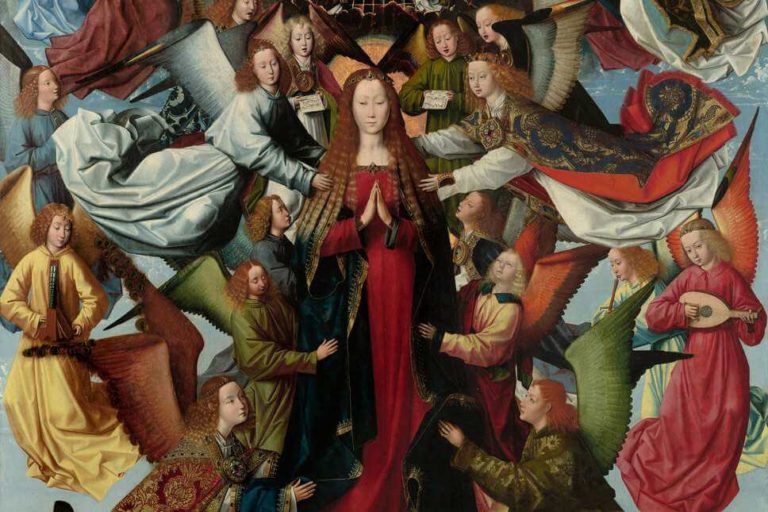Q. The prayer “Hail, Holy Queen” has three phrases in it that trouble me. They are: “to thee do we cry, poor banished children of Eve”; “mourning and weeping in this valley of tears”; and “after this, our exile.” The author of this prayer makes life on earth appear to be a punishment. What is the history of this prayer, and was the author troubled? (Suffolk, Virginia)
A. The origin of the prayer “Hail, Holy Queen” (its Latin title is “Salve Regina”) is uncertain, but many historians ascribe it to an 11th-century German monk and scholar, Hermann of Reichenau — and your question and the wording of the hymn incline me to think this may be true.
This monk is sometimes referred to as Hermann the Lame, or Hermann the Cripple. He was born with a cleft palate, cerebral palsy and spina bifida; he had great difficulty moving and could hardly speak. When Hermann was 7 years old, his parents placed him in the care of the Benedictine monks of the abbey of Reichenau.
Despite his physical disabilities, Hermann was a brilliant student and wrote several works on mathematics, astronomy, history and theology. Later in his life, his sight beginning to fail, Hermann is thought to have composed religious poetry and music, including the “Hail, Holy Queen.”
It is one of the church’s best-known Marian prayers and is commonly recited or sung in monastic communities at the close of day; it is also frequently used by Catholics as the concluding prayer when reciting the rosary. (Often, too, the “Salve Regina” is sung at the end of a priest’s funeral by his fellow clerics.)
The “Hail, Holy Queen” strikes me as a prayer of love and devotion coming from the heart of an author who may have suffered greatly during his life. Different prayers, of course, speak to the life experiences and preferences of different people, and there is no obligation to pray with wording you might find troublesome.
(Some historians note that in 1492, on his voyage to the New World, Christopher Columbus would gather his crew on the deck each evening and sing the “Salve Regina,” signaling their confidence in Our Lady’s protection.)
Q. In a recent letter to our archdiocesan paper — The Catholic Sentinel — someone wrote that: “In regard to COVID-19, there is no evidence that God had anything to do either with its development or with its dispersal.” There’s an obvious problem with theology here. Was COVID-19 self-existent? Or did God create it? (Tigard, Oregon)
A. The human origin of the coronavirus is disputed; among the theories are that it originated in bats and was subsequently passed to humans, that it came from a seafood market in China or that it was engineered in a biolab and accidentally released. Whatever account one ascribes to, we are still left with this question: Why would a loving God let this happen?
That is the age-old “problem of evil,” which theologians have grappled with for centuries, and the most honest answer is: “We just don’t know.” In March, a large sign in Dallas asked: “Is the coronavirus a judgment from God?” My answer would be “No,” and I would call both Jesus and Pope Francis as my witnesses.
Remember in the Gospel of John (9:1-7) when Jesus was asked about the blind man, “Rabbi, who sinned, this man or his parents, that he was born blind?” Christ’s response was: “Neither he nor his parents sinned; it is so that the works of God might be made visible through him.”
In a meditation that he offered recently, Pope Francis said of the coronavirus that this is not a time of God’s judgment but of our judgment, “a time to choose what matters and what passes away, a time to separate what is necessary from what is not.”
The pontiff lauded health care workers and all those who are praying for victims of the coronavirus; in the midst of this crisis, the pope noted, God is calling people to faith — not just believing that God exists, but turning to him and trusting him.


